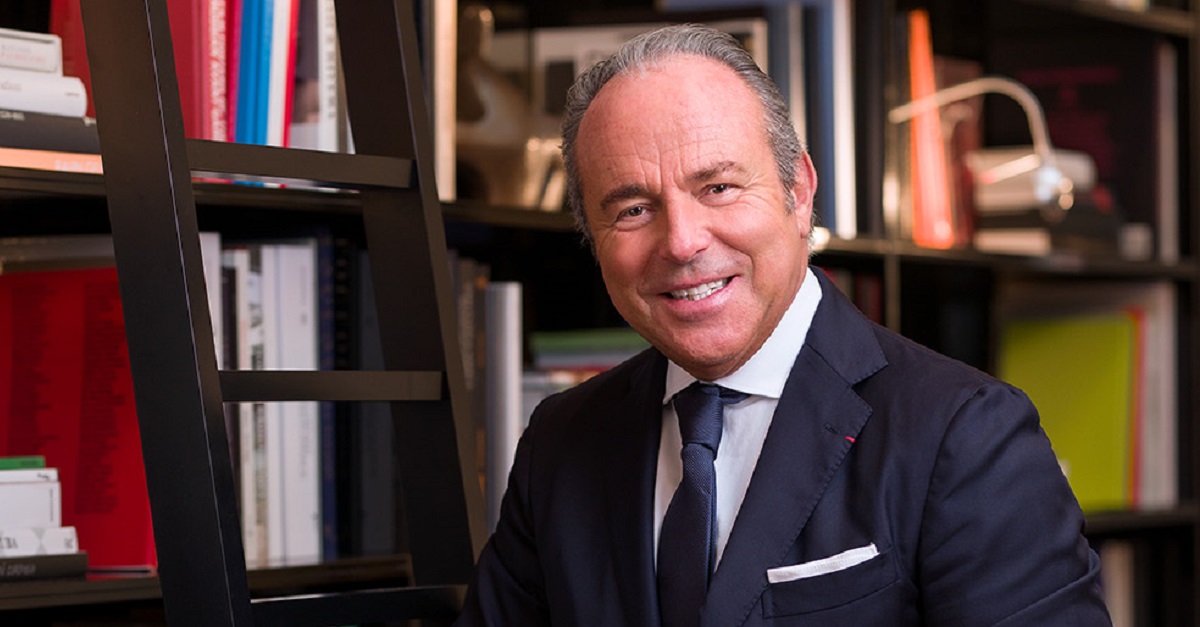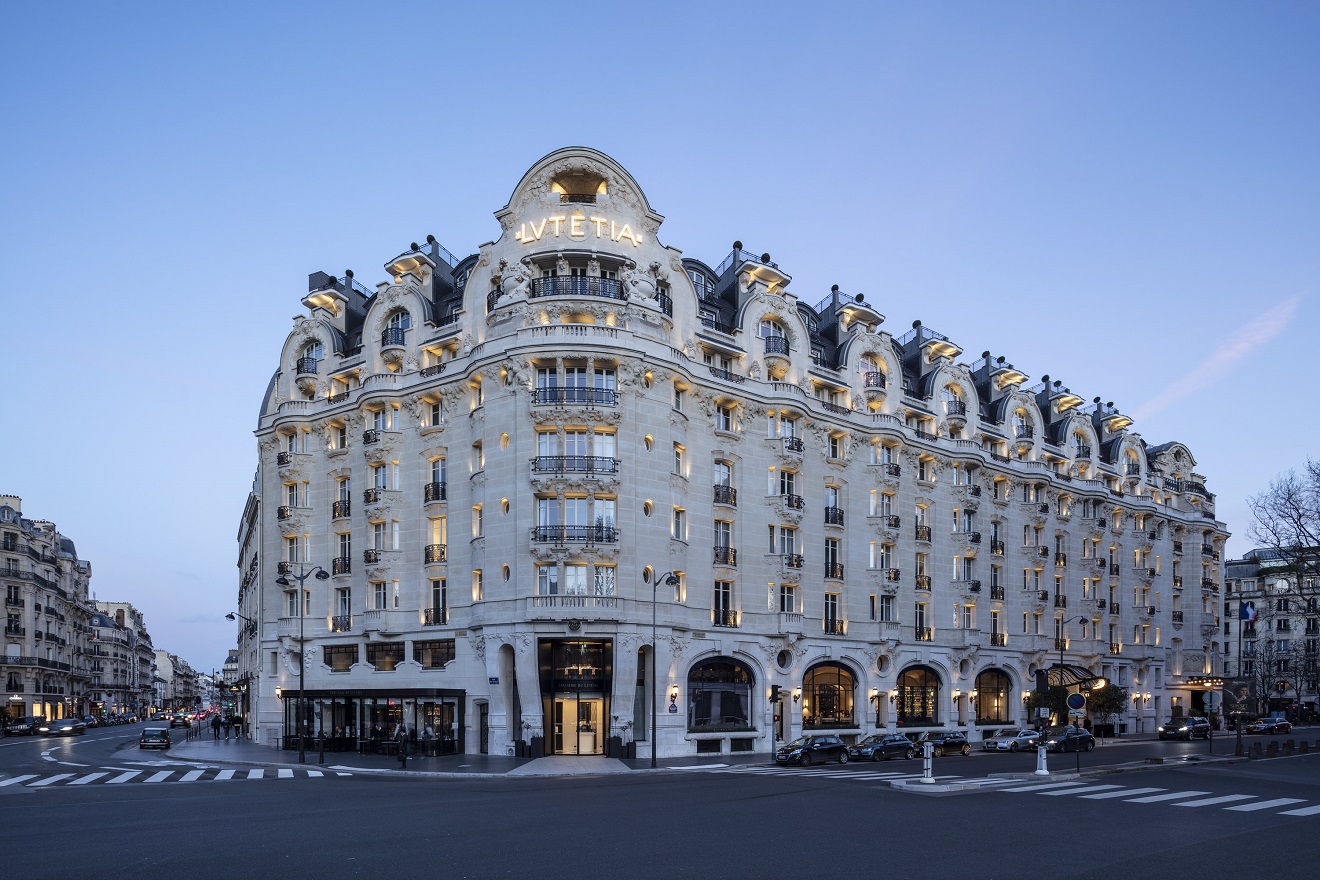The luxury Interview of...

Jean-Luc Naret
Executive Director - The Set Collection
Luxury means exceeding customer expectations with an extra soul
With an unrivalled track record and experience in the luxury hotel industry, Jean-Luc Naret has been Executive Director of The Set Collection since 2021. Launched in 2021, the new international luxury hotel brand includes among its first member hotels: Lutetia in Paris, Café Royal in London, Conservatorium in Amsterdam, and Mamilla Hotel in Jerusalem.
The goal of the group and Jean-Luc Naret is to make The Set Collection the first choice for hotel owners and investors looking for a partner to affiliate with a leading brand.
As specialist in high-end travel, Jean-Luc Naret was for eight years General Manager of the Michelin Guides, repositioning the famous brand and expanding it outside Europe by adding 12 new guides, notably in the United States, Japan and Hong Kong.
After graduating from a hotel school, Jean-Luc Naret began his career in London (Orient Express), Paris (Hôtel Le Bristol), then Bora Bora, until he became General Manager of the Saint-Géran in Mauritius at the age of 29. Subsequently, still as General Manager, he developed the business of luxury establishments such as The Residence Mauritius and the Sandy Lane Barbados, and became Vice President Operations of the Asian group Serena Hotels.
After an 8-year hiatus from the Michelin Guide (2003-2011), Jean-Luc Naret returned to the magical world of resorts in the Indian Ocean, at Heritage Resorts (Mauritius) and One&Only Reethi Rah (Maldives), before taking over the reins, as CEO, of La Réserve Hotels & Spa for 2 years. This was followed by the creation of his consultancy firm JLN&CO, dedicated to the development of new ideas and innovative concepts for the luxury industry.
Bureau d'Image and Hotel Lutétia Paris have established a long-term partnership in 2012 for training in grooming and luxury reception. Bureau d'Image has adapted an ambitious tailor-made project to transform customer relations in luxury, customer relations in a Palace, for all teams, on the occasion of the reopening of the establishment.
Bureau d'Image: How would you define luxury?
Jean-Luc Naret: Coco Chanel said that luxury was the opposite of vulgarity. To me, luxury is synonymous with elegance. It exists in all its forms, from chic to ostentatious. In its material aspect, it's the decoration that you remember. When you go to a hotel for the first time, it is for its location, its decoration, its atmosphere... but when you return, it is for the impeccable service you received.
Our objective, through the work of our teams, is to transform the expectations of our most demanding customers into reality. Once the client leaves, this reality becomes a memory. I define luxury by this mathematical formula: S=A+1. Success is equal to the response to expectations + what we give in addition, the emotions we arouse.
Customers' expectations are based on their past experience, their knowledge of the place and the reputation of the establishment. What will guarantee success, complete satisfaction, is the little extra, the service and the attention that they did not expect. Luxury is the sense of detail and the permanent quest for excellence through intangible attentions that make the heart beat faster.
BI: Does French luxury exist and what would be its characteristics?
JLN: France is the world leader in the luxury industry, particularly through the development of large luxury groups, leaders in their market. French luxury is characterised by its know- how and a touch of elegance that is the envy of the whole world. This is felt in art, literature, architecture, decoration... In the hotel industry, 20 years ago, all the most beautiful establishments were in Asia. Today, the great French Palaces, like the Lutetia, enjoy a strong, historic and patrimonial image, but we have gradually moved away from a pompous, sometimes arrogant service. In our hotels, the quest for emotion now takes precedence, supported by this French-style service, a mixture of performance, precision and discretion. The best service is the one that is not visible, that does not interfere with the privileged moment experienced by the customer.
BI: Which personality do you think best embodies luxury today?
JLN: Karl Lagerfeld. Living on rue Cambon in Paris - the rue Chanel! - I have a special affection for Karl Lagerfeld. He had an incredible range of talents. Artist, photographer, designer. He managed to dust off the House of Chanel which was on the verge of bankruptcy. He embodied Chanel without ever betraying its spirit.
BI: What have been the major developments in luxury over the past decades? What will the luxury hotel industry of tomorrow look like?
JLN: Luxury has become somewhat democratised. When I first visited Hong Kong or Singapore 30 years ago, I was amazed by the number of luxury brand boutiques. Even then, it was in response to the growing demand of a clientele who, according to their means, wanted their share of luxury. Today, some people experience luxury (for a product, a service, a stay or a meal) on a regular basis, others on a more occasional basis. Some brands have been able to capitalise on this democratisation trend, such as Balenciaga, which is very popular with the new generations. These brands have a strong capacity to adapt to trends and consumer modes and the hotel industry must follow this movement.
BI: How do luxury hotels stand out?
JLN: What sets luxury hotels apart is the ability to exceed guests' expectations with an extra soul. With attentive and invisible service, a special attention to detail that can arouse emotions. A quote from Confucius makes sense here: "Life is not measured by the number of breaths taken, but by the number of moments that took our breath away".
BI: How would you describe a successful customer experience in a shop, in a hotel or when travelling? What are the key factors to delight and retain customers?
JLN: A successful customer experience is - once all expectations have been met - when you manage to add surprise to the customer's expectations. They expect genuine, attentive and authentic attention. To achieve this, it is essential to know our customers well, to ask them questions in order to personalise the service and anticipate their expectations.
BI: Are you noticing a sociological change in the luxury clientele?
JLN: As luxury has become more accessible in recent years, the clientele has broadened. The hotels and boutiques of the big brands no longer cater only to the well-to-do, but to a wider section of the population who want to treat themselves to a slice of luxury. But this does not in any way detract from the demand for service and attention that we place on ourselves every day.
BI: Does an appetite for luxury and refinement prevent an appreciation of simpler things?
JLN: On the contrary. I have a great appetite for life, I would be desperate not to marvel at anything. I am touched by nature, a smile, an encounter. So, I recommend to my children, as well as to my teams, to write down every day in a notebook the things that have surprised them and then discuss them at the end of the week. That's how we can be nourished by the simple riches of everyday life.
BI: What do you remember about your first stay in a luxury hotel?
JLN: As a child, when we went on holiday with my parents, their good intention was to show me the museums. My personal intention, which was very strong, was to visit the hotels which - for me - were already museums. I was fascinated by these beautiful hotels, these large corridors. In the same way, in the great Parisian brasseries, I could stay for hours watching with wonder the ballet of the waiters, the butlers... I knew at a very young age what path I wanted to follow (smile).
BI: What is your greatest memory in a luxury hotel?
JLN: It's very difficult to choose because there are so many and I never tire of these places. But they are always the result of emotional moments, olfactory memories... Never related to appearances, the size of the establishment or anything ostentatious.
BI: What is your worst experience?
JLN: It was in Tokyo, in a big hotel, in the presidential suite with an incredible view. In the middle was a gigantic bathtub filled with flower petals. A very romantic place and environment. Unfortunately, in the evening, the bathtub emptied for 45 minutes with a terrible noise. This detail, which in the end no longer becomes a detail, marred a very pleasant moment in a wonderful place.
BI: What is your favourite hotel or palace?
JLN: The one I haven't visited yet.
BI: What is the most luxurious gift you have ever given?
JLN: When I opened a hotel in Mauritius, The Residence Mauritius, we used to give our guests - on their departure - a beautiful marble object (the same one we used for the establishment) to thank them.
BI: What is the most luxurious gift you have received?
JLN: When I go to a hotel, I enjoy reading the card left by the general manager of the hotel in my room. The way it is written and the words used can touch me. It's a great gift to receive a handwritten, personalised letter.
BI: What is considered a luxury, but you couldn't live without?
JLN: A beautiful watch.
BI: What kind of leader are you? What principles guide your professional life?
JLN: My role is to give a vision, set a course and communicate my passion. Once this vision is shared and adopted by everyone, I let it go. I am lucky to be able to count on the General Manager of the Lutetia - Jean-Pierre Trevisan - who was number 2 at the Ritz, the George V and the Crillon. I am at his side to accompany him but at no time do I interfere in his management and leadership.
During a previous experience in a large hotel, the owner once asked me: "Who manages the hotel when you are away? I replied, "The same people as when I am here!"
BI: What is the most important quality you require from your teams?
JLN: Openness.
BI: Which fault do you find most lenient?
JLN: A mistake comes from a good feeling and a good intention.
BI: What advice would you give to young professionals?
JLN: My main advice would be to make your passion your profession. So I like to tell young professionals to learn a trade, to train with the best, and above all not to be afraid of making mistakes! They can evolve, move, go abroad, in order to make the right choices that will make them happy.
BI: What do you recommend for men: a neat beard or a close shave?
JLN: As long as it is well trimmed, I have no problem with a beard. In the hotel industry, codes have changed. I would illustrate this with one example among others, that of bartenders: the time when they wore white jackets, bow ties and their hair slicked back is over. They now have to be at the cutting edge of the trend.
BI: For women: for or against red varnish?
JLN: If it's a Chanel, yes!
BI: For or against tattoos? Piercings?
JLN: They have to be discreet. It also depends on the style and environment of the hotel you're in.
BI: If luxury were a colour, what would it be?
JLN: Black, for its sobriety, its elegance.
BI: An animal?
JLN: The panther, agile and always anticipating.
BI: An adjective?
JLN: Unique.
BI: An emotion?
JLN: The surprise.
BI: An object / A work of art?
JLN: A sculpture, more in motion than a painting.
BI: A motto?
JLN: Life is too short to make it sad.
BI: A virtue?
JLN: Honesty.
BI: A historical figure?
JLN: Yves Saint-Laurent.
